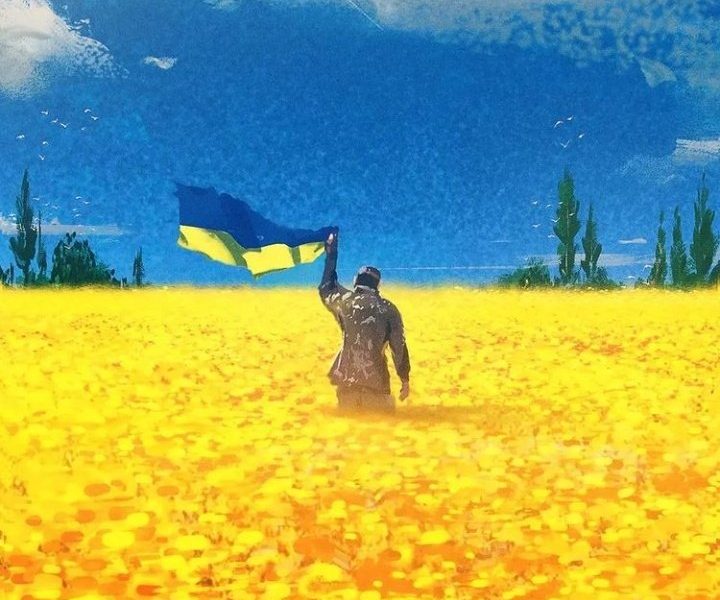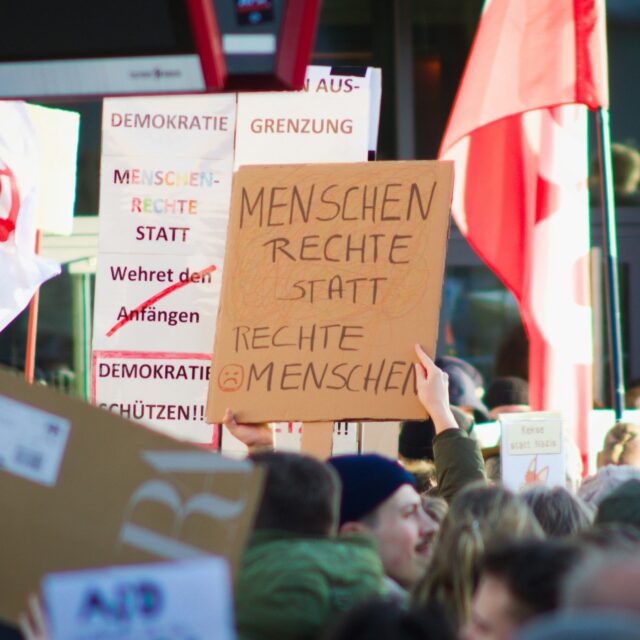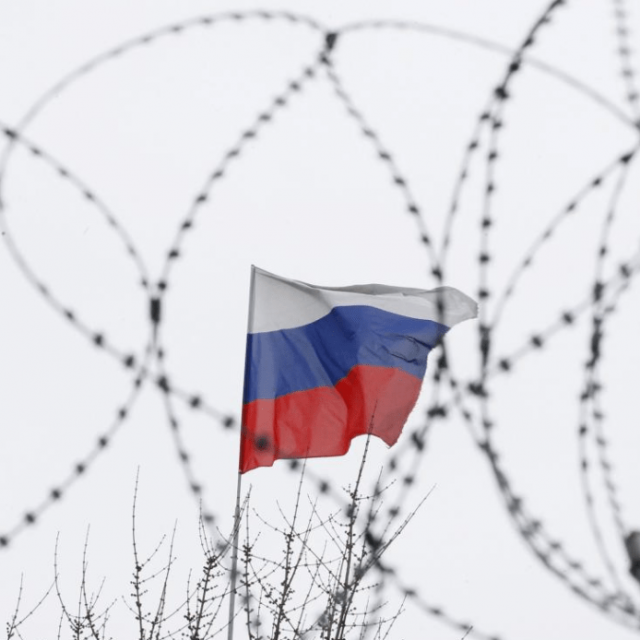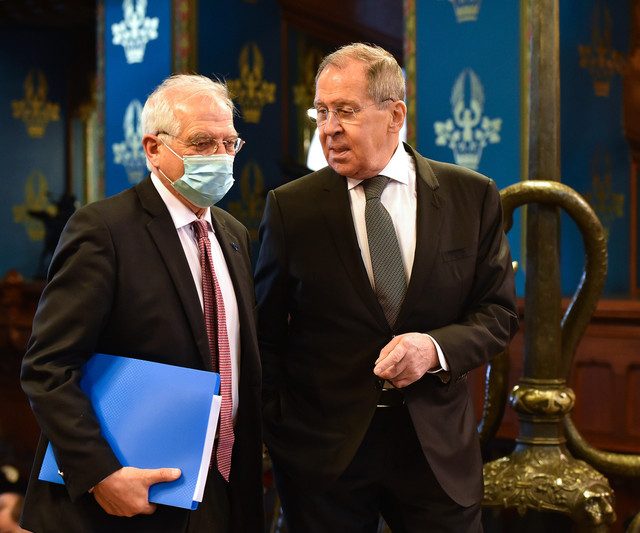What are the advantages and disadvantages of possible future scenarios for Russia, proposed by various communities.
Over the past couple of months, several large-scale discussions about the possible future of Russia have taken place in the information space. All these discussions are united by a single vision of where this future begins. Almost everyone who takes part in the discussion recognizes the military victory of the Ukrainian army over the Russian invasion as the beginning of the future. In this way, various political movements in the West, including Russian political exiles opposed to the Kremlin, have reached a consensus that the victory of Ukraine is the only format of the future that suits everyone, writes Dmytro Zolotukhin.
Many political analysts and politicians in the West, including the US, the UK and the EU have the same vision. However, many of them are being rather careful in statements, because there is still no agreement on what this victory will look like and what will happen after it. Therefore, I decided to collect the opinions presented by various communities and explain what advantages and disadvantages they have for Ukraine.
Why won’t our enemies “vanish like dew upon the sun”?
Ukrainian writer Gustav Vodichka in his book “Homeland of Dreaming Angels” says that Ukrainians are the most “buddhist” version of Europeans. Even the Ukrainian anthem has a very specific line “our enemies will vanish like dew upon the sun”. Which means that they might die by themselves, without any effort on our part. This line is very similar to the famous quote of Sun Tzu “If you wait by the river long enough, the bodies of your enemies will float by.”
And when this happens, the next line of the Ukrainian anthem says “And we, too, brothers, we’ll live happily in our land.”. Again, this will happen without our efforts somewhere in the future, not right now. This principle is clearly and consistently observed in social network fights and arguments. Very often in the comments under my posts about Russia, common people write: “Why do we need this information? Let them die there!…”
Again, “let them die” by themselves without our efforts. This opinion is popular in the Ukrainian information space. So, for example, in the book “Jopa mira” by the Ukrainian writer Valery Prymost, it is said that someday miraculously Russia no longer exists, because it simply disappeared and in its place, the sea now splashes, from Ukraine and Belarus to Chinese borders. Foreign Minister Dmytro Kuleba began some of his speeches with the words “Imagine there’s no Russia,” and the special envoy of Ukraine for sanctions, Oleksiy Makeev, even wrote the lyrics of an updated John Lennon song on Twitter.
Despite this context, which is undeniably important for Ukraine’s victorious mood, the 140 million people on territories east of Ukraine, will remain where they are now, because the Ukrainian Army is not killing civilians, like the Russian army does. And that’s why we all need to understand how to make them no longer threaten us with nukes or invasions.
Another naive narrative which is being spread is “let Russians build a democracy there themselves. And democratic Russia will be safe for us and the civilized world. And we will help them to do this with our advice and moral support.”
A number of respected European thinkers and experts share this position. For example, Roland Freudenstein, deputy director of the European People’s Party-backed Martens Center, in a recent discussion of the report “EU Relations with a Future Democratic Russia: A Strategy” published by the Wilfred Martens Center for European Studies said the following: “There is no doubt that the future of Russia will be determined by the Russians themselves.”
I strongly disagree with this position.
First, to determine the future, the specific person or a group of people who determines it is absolutely necessary. He (or they) should express a desire and a vision of what should happen, and declare the state in which Russians want to be after a certain time, and the means of achieving the goal.
Unfortunately, there are no such people in Russia or abroad. Russian society is forcibly held in the past by a criminal terrorist regime of a group of ex-KGB operatives who also have no other future than a prolonged past. That is, an attempt to recreate the Soviet Union within the limits of the space to which they can reach with their resources. It is noteworthy that the Russian propagandist Margarita Simonyan emphasized in one of the last broadcasts on television that “the best picture of the future for Russians is the shared picture of the past.”
Russian opposition politicians in exile have diametrically opposite positions, criticizing Putin for aggression against Ukraine. However, they also lack a vision of the future. Their longest horizon of events is the loss of power by Vladimir Putin. And they cannot say what will happen next, willing to enjoy the Ukrainian military victory in full.
Secondly, even if there is someone who would say “I know where the Russian Federation needs to be led and what it should become…”, this also does not suit me. Because I believe that after posing the long term existential threat to Ukraine, what Russia should look like must be agreed upon with the Ukrainians as the winning nation. If Ukrainian people do not participate in this process, then even after replacing Putin and his gang with other people (for example, Oleksiy Navalny and the so-called “Navalnists”, or Mikhail Khodorkovsky and his supporters), these people will face the harsh realities of Russian resentment.
This means that there are no guarantees that Russia’s attack on Ukraine or any other country, including an attack with nuclear weapons, will not be repeated in 10-20 years. Like World War II that was started by Germans after the humiliation of World War I. In this case, our children will have to cope with the next Russian aggression, not you and me. It doesn’t suit me. And I believe it does not suit you, as our mutual responsibility is not to bequeath the war to our posterity.
Therefore, Ukrainians cannot let the events in the northern and eastern territories happen without their participation. Ukrainians should, at the very least, control the transformations taking place there. And, at most, form these transformations by themselves. We have to accept this duty and to assure our western partners that we are capable of fulfilling it.
Decolonisation of Russia in practice
On July 22-24, 2022, the second Free Peoples of Russia Forum was held in Prague, the participants of which discussed how to carry out real work on the decolonisation of the remnants of the (modern Russian) empire and how to encourage the active actions of the Russian opposition. The “Declaration on Decolonisation of Russia” was adopted at the Forum. At its beginning, it is emphasized that the process of complete and general decolonisation of Russia should be based on international law, including the Universal Declaration of Human Rights and the right of nations to self-determination enshrined in the UN Charter. The Declaration further states that Russia today is a terrorist state led by war criminals. Accordingly, today Russia is on the verge of chaos and civil war.
At the forum in Prague, an interesting map of Post-Russia, which consists of separate subjects, was presented. Drawing maps of future territories is an extremely thankless task since none of the future entities will be satisfied with the borders proposed. At the same time, the issue of decolonisation in general, and the decolonisation of Russia in particular, is popular and important for the entire world community.
First, the fight against the enslavement of peoples remains in the mainstream of the Western liberal-democratic agenda, based on the concept of freedom and free choice for people. This segment includes, on the one hand, the events in the USA regarding the rights of African Americans, and the policy of Emmanuel Macron regarding the former French colony of Rwanda. On the other hand, we see the growing importance of the “Wagner group” increasing its presence in Mali and the Central African Republic.
Secondly, the unnatural oppression of ethnic and national identities in the Russian Federation leads to the fact that incredible war crimes against humanity become possible. The Ukrainian diplomat Roman Bezsmertniy, who survived the Russian occupation, spoke about it in his interviews. According to him, the national identity of the people who inhabit Russia is obviously suppressed. For example, Dagestanis and Chechens are called “Churks”, “Dagas”, “Czechs”, etc. Therefore, some people of different ethnic groups who call themselves “Russian” or “Russians” are being forced to do that. Sometimes they do not understand their borders and boundaries because their self-identity has been taken away from them. If you can no longer be a Buryat or a Tuvan, because the Kremlin took that right away from you, it means that you can no longer control your life. If you were ordered to be “Russian” instead of “Buryat”, then you can also be ordered to kill and rape other people… And you will obey. This is exactly what has happened in the Ukrainian city of Bucha. Therefore, taking away self-identification from the people inhabiting Russia makes them “pet-like Frankenstein’s monsters” who will simply follow orders.
Thus, the decolonisation of Russia has several positive contexts at the same time, which Western experts are already writing and talking about. Decolonisation of Russia is the transformation of the modern Russian Federation into a voluntary confederation, or into a number of independent states, the same as the transformation of the USSR into the Commonwealth of Independent States (CIS). It should be underlined that now Russia is definitely not a federation because of the style of political power that provides appointment of local authorities by the Kremlin.
There are, of course, some negative features to this scenario. Such a configuration would essentially require a new “Helsinki Final Act” to be concluded, and a reconvening of the United Nations and its Security Council. The scenario also carries risks of destabilisation in Central Asia and the North Caucasus, because of the absence of the “security donor”. However, now, due to the full-scale invasion against Ukraine, Russia can not be considered as a “security donor”, but a source of the instability. And the Armenian-Azerbaijan conflict is an obvious example of this fact.
In addition, the US, UK, and Western Europe would largely oppose such a scenario, as it does not include control over Russia’s nuclear arsenal, nor does it guarantee that it will not make China stronger or lead to annexation of Russia’s Far Eastern territories by China.
In other words, the decolonisation of Russia cannot be considered separately from nuclear disarmament, demilitarisation and systematic financial and organisational support of the states formed after the collapse of the empire. And this, in turn, calls into question the ability of Russia to pay contributions in favour of Ukraine. After all, we count on the Kremlin to pay for everything it has destroyed in Ukraine. However, if the Kremlin is no longer there, then the conditional Sakha (Yakutia) or Ingria (centred in St. Petersburg) can say that it is not responsible for the criminal actions of the former President of the Federation.
Thus, the issue of contributions and legal succession should also be considered in the context of the decolonisation of Russia. The same applies to the supply of energy resources and other minerals from former Russian territories to Ukraine and the countries of the European Union. In that case, the supply of energy resources to the West can even win from the cancellation of unnecessary intermediaries like the Kremlin or Gazprom. The business agreements will take place between real consumers of the oil and gas and real producers, not oligarchic groups who run the sixth part of the planet.
On the other hand, in case of the complete disintegration of the Russian Federation into individual confederated or independent entities, the constant existential threat of an attack by Russia disappears for Ukraine, Poland, Finland, Japan and the Baltic states. And Russia itself is shrinking to the territories where ethnic Russians actually live. If the Buryats, Tuvans, Mordvins, Ichkerians, Karelians and other peoples will have their own homelands, then they will no longer have to think about how to make Russia a “great power” at the expense of destroying someone else… This great achievement could be a worthy reward for the exhausting work of our generation to create a world tattered by our indolence, but safe, due to nurturing the values of life and freedom of every person for our future generations.
Great impotence of the opposition…
From August 31 to September 2, 2022, the Congress of Free Russia was held in Vilnius (Lithuania). This is also the second event of this kind – the first one took place in Vilnius in May of the same year. This May an initiative was presented, which the media called “the passport of a good Russian”. Garry Kasparov, Yevgeny Chichvarkin, and Dmitriy Gudkov proposed to create a procedure that would allow to identify those citizens of Russia, who made certain declarative statements, and to remove restrictions and sanctions of Western countries, and to obtain the unblocking of bank accounts and permission to travel around the world for the, so called, “good Russians”.
In fact, the Russian journalist Ilya Azar wrote, factually, an epitaph in honour of these initiatives in his detailed report on the pages of the Russian “Novaya Gazeta”. Ukrainian experts who spoke with representatives of the “true Russian opposition” confirm the general impression formed by Ilya Azar’s report.
First of all, it is worth noting that one of the key motivations of these people is personal comfort, but not changes within Russia. Efforts directed by Kasparov, Chichvarkin, and Gudkov to unblock the bank accounts of Russians abroad and create legal grounds for Western governments to remove restrictions from individual Russian citizens in exchange for their declaration of an anti-Putin position are undoubtedly important. The more people on the planet who declare that they are against Putin, the less support he will have. However, we understand very well that Putin’s support does not depend on declarations of those who live abroad, but on those people who run Russian television, which explains to the citizens of Russia that “war is peace”, “slavery is freedom”, and state TV channels which provide all the necessary information for life, so other sources are irrelevant.
Thus, the actions of the Russian opposition in exile, aimed at arranging the life of Russian citizens in Western countries and organising the departure of an even greater number of Russian citizens from the territory of Russia, will in no way bring the end of aggression against Ukraine closer.
Unfortunately, true Russian oppositionists do not offer any other tools to influence the situation. In the same report, Ilya Azar quotes Chichvarkin’s answer to the question of a municipal deputy from St. Petersburg: “What should those who remain in Russia do?” Answering the question Chichvarkin has said: “pack their bags up and run.”
Moreover, the Russian opposition in exile has created a narrative that those who remain in Russia are in one way or another aiding and abetting the Putin regime by their mere presence.
But, there is an even bigger problem. The official Russian opposition in exile considers Ukraine’s victory in the war with Russia to be the most long term prognosis for the future. For example, Garry Kasparov wants to see the Ukrainian flag over Sevastopol. However, he is not yet ready to take responsibility for any forced actions, as his compatriot Ilya Ponomarev, who declared that he has the links with those who could kill the daughter of Oleksandr Dugin, top Russian propagandist. Because of Ilya Ponomarev’s words Kasparov and his comrades refused to accept him at their Forum.
But, neither Kasparov nor Chichvarkin are saying what Ukrainian victory over the Kremlin might look like and what happens next? They only believe that they will get power in Russia when it will be lying helpless under the tracks of Ukrainian tanks. At the same time, they refuse to discuss what will happen when they try “to lift it”. This may indicate either that they do not know this, or that they already have certain arrangements with various parts of the Russian elites who have lost hope in Putin and are not sharing the existing plan.
One way or another, both these options do not suit the Ukrainians, who are interested in guarantees that Russian resentment of defeat will not lead to a new war in 10-20 years, when their children would cope with it.
The opposition Russian politician Vladimir Milov, who was recently invited to join the discussion about the future relations of the European Union with Russia, publicly rejects any hypotheses about the disintegration of the Russian Federation, because, in his opinion, separatist sentiments in Russian regions are so marginal and immature that they have the magnitude of a statistical error.
At the same time, Milov rejects the idea of uniting the Russian opposition abroad to create a unified strategy. Because, according to him, if such a path is chosen, the discussion within the Russian opposition environment will not have a single answer to the question “who is the chief?”.
Those Russian oppositionists who occasionally appear in the media generally support Ukraine’s victory over Russia, but not the idea of Russia’s disintegration. In addition, they do not have a programme of concrete actions needed to transfer power from Putin’s gang to another entity. Unfortunately, such a hypothetical entity does not exist and it is not even planned to be created.
Meanwhile, in the event of the destruction of the Putin regime, lustration procedures will be absolutely necessary, through which tens of thousands of people, one way or another connected with the support of Putin’s regime, will have to go through. It is not clear who will do this lustration and under what programme. This means that if the same people with the same ideology are kept in power, even the removal, trial and execution of Putin cannot guarantee that Russia will not attack us again in ten or twenty years. And this brings us back to the questions already raised above.
Fear of uncertainty Vs Freedom and democracy
The victory of Ukraine over the Russian army is the only possible picture of the desired future for political elites. Not everyone, for various reasons, voices it. One of these reasons is a deep fear of uncertainty, the generator of which will be a Ukrainian victory. It was this fear that prompted the Republican George Bush to deliver a speech in the Verkhovna Rada of Ukraine on August 1st, 1991, which later became known as the Chicken Kyiv speech. Bush suggested that Ukrainians build democracy while remaining part of the Soviet Union. He said it three weeks before the fate of Ukrainian independence was decided forever.
It is this fear of uncertainty that formulates the question “what will happen to the nuclear arsenal?”, “what will happen to Central Asia and the North Caucasus? Who will control them and stop them from destabilisation?”, “and what will happen to the millions of Russian refugees who will pour into Ukraine and the EU in the event of turmoil in Russia?”.
This fear of uncertainty must be overcome. However, experience shows that there are “official Russian oppositionists in exile”, who see the Russian Federation as a united state, but do not help in overcoming the uncertainty in any way. Instead, the disintegration of the Russian Federation into confederated or independent territories in a package with nuclear disarmament and demilitarisation of the territories (as was done with Ukraine in 1994) can become a clear and transparent scenario of the future that will come after the Ukrainian victory.
However, in order to create this scenario and convince the planet of its probability, Ukrainians need to do much homework. We need to accept responsibility for the fact that we will determine what will happen on this 1/6 of the Earth’s surface in the next 200-300 years and how this will unfold. This is a great responsibility and a difficult task for a nation that has not recovered from the traumatic experience of the past few centuries. But it seems that we have no other choice.
At the same time, not only Ukrainians have to do their homework. The democratic world has to pick a side and demonstrate a proactive position. The independence of Poland, Finland and the Baltic states was supported by the West after World War I and the dying of the Austro-Hungarian Empire. However, the independence of Ukraine and other future constituent republics of the USSR was not supported. That choice gave hope for democracy and freedom to some nations, but others, who were not supported, remained under the bloody tyranny of the Soviet Union.
The reconstruction of the Russian Federation under full control of the democratic world can cope with the risks that made George Bush deliver a speech written by Condoleezza Rice in the Ukrainian parliament advising Ukraine not to leave the Soviet Union. Wise and proactive policy towards Russia, can not only ensure global security and the victory of democracy over authoritarianism, but to create new global economic opportunities with spending less funds on defence needs, but more funds on combatting climate change, Arctic projects, energy, oil and gas production.
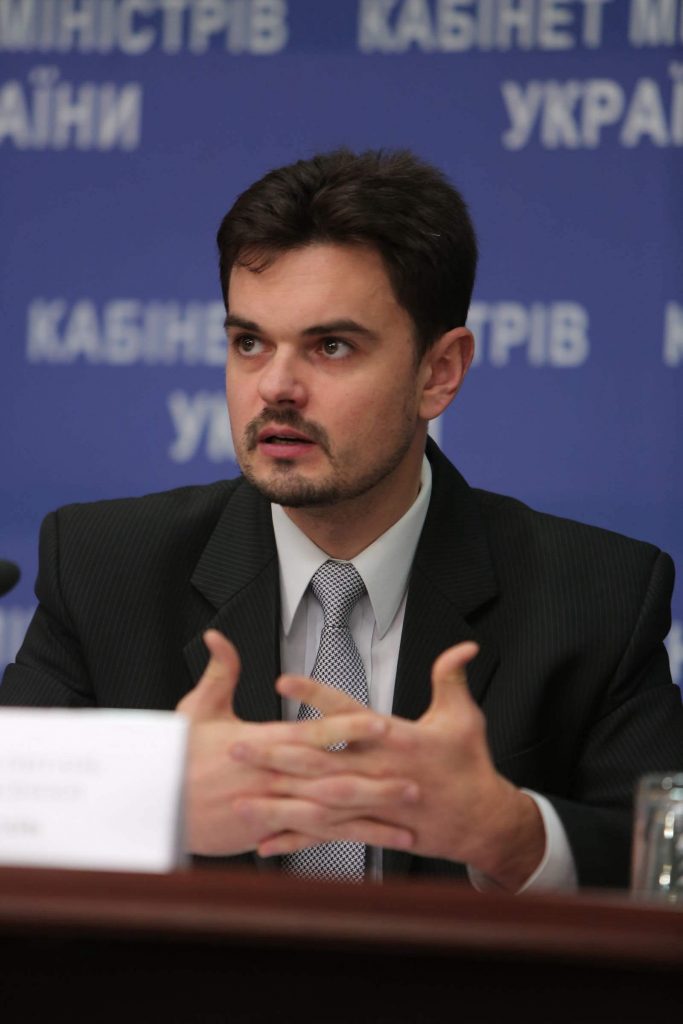
The Author, Dmytro Zolotukhin, is the Director of the Institute for the Postinformation Society, Ukraine

